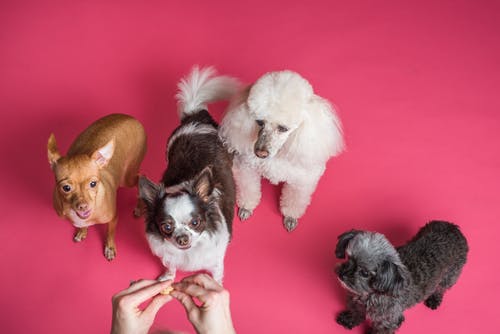Reptiles, birds, and small mammals are great companion animals that are also enjoyable. Each species comes with its own set of challenges. Avian pets need to be taken care of to avoid most illnesses. Avian husbandry demands a high standard of cleanliness.
What is the most beneficial way to keep the cage clean and tidy?
Many pets engage in most of their routine activities in a tiny living space, like drinking, eating, defecating, and playing.
Because of their restricted environment, birds often urinate in the food or water dishes, on perches, and other objects within their cage. If you do not wash the floor of your bird’s cage, food items, feces, and other items may accumulate, spreading fungi and germs, including mold. Be sure your loved pets have clean and tidy homes to present to their feathered pals.
If you are looking for an avian or exotic pet veterinarian, you can check websites like pinegroveanimalclinic.com.
1. Use hot water and detergent.
Clean your bird’s cage components by using hot water and detergent. Then rinse them thoroughly using clean water, use disinfectants like Avisafe or F10 to treat common fungal and bacterial illnesses to ensure that you can control the disease.
You can use bleach (1:32 diluting bleach and water) to combat resistant bacterial or viral ailments. If you choose to use an item to clean your bird’s cage, review the label and speak with your avian vets should you have any questions?
2. Check the feeding bowl and water dishes daily.
Clean up and empty the dishes for water and feed your pet bird every day. After thoroughly washing with water, dry it. You should store containers for water and food in separate sets. Steel plates made of stainless steel are cleaner than plastic dishes and water bottles, which are difficult to clear.
We also favor round dishes over rectangular or square containers since bacteria will grow within food dish and water dish corners. To prevent food from getting onto the floor of the cage. In the bird’s bowl, make sure only to feed your bird the amount it consumes during the day. Food that your pet did not eat will become stale and could be a breeding ground for microorganisms that can be dangerous to your bird’s health. If your pet is sick, you can check out this page to search for the best avian and exotic animal care.
3. Make sure your bird’s perches remain clean.
Make sure your bird’s perches are tidy. Use warm water or detergent or disinfectant along with the help of a scrubbing brush or scourer to get rid of feces and organic matter from nests. We would not want to live in a place where our wastes were always in the ground. There’s no reason to think that our pets should not be the same. Natural perches are preferable to dowels, plastic, or rope perches because they are easy to replace each week. Fresh branches can also give your pet bird chances to enjoy a healthy environment regularly.
4. Check that the cage’s floors are clean.
Clean the floor surfaces of cages at least once a day because this is where food waste, feces, water, and other disgusting objects accumulate. The most cost-effective and efficient floor cover is newspaper. They used soy-based ink in many newspapers. It is safe and non-toxic for your pet to chew.
The bottom tray every week. The whole cage must be thoroughly cleaned and maintained, including the contents. The owners should check perches and plates, toys, and other cage-related items to check for wear or rust. You need to change all rusted or damaged toys and perches with frayed rope as soon as possible.
If you also have a dog who requires treatment for its internal systems, you must find a reputable dog internal medicine specialist.
Conclusion
There are three types of hygiene protocols for birds: ambient cleanliness and food safety and “personal” bird hygiene (grooming). To ensure the good health of our birds demands continuous use of proper practices for hygiene.
